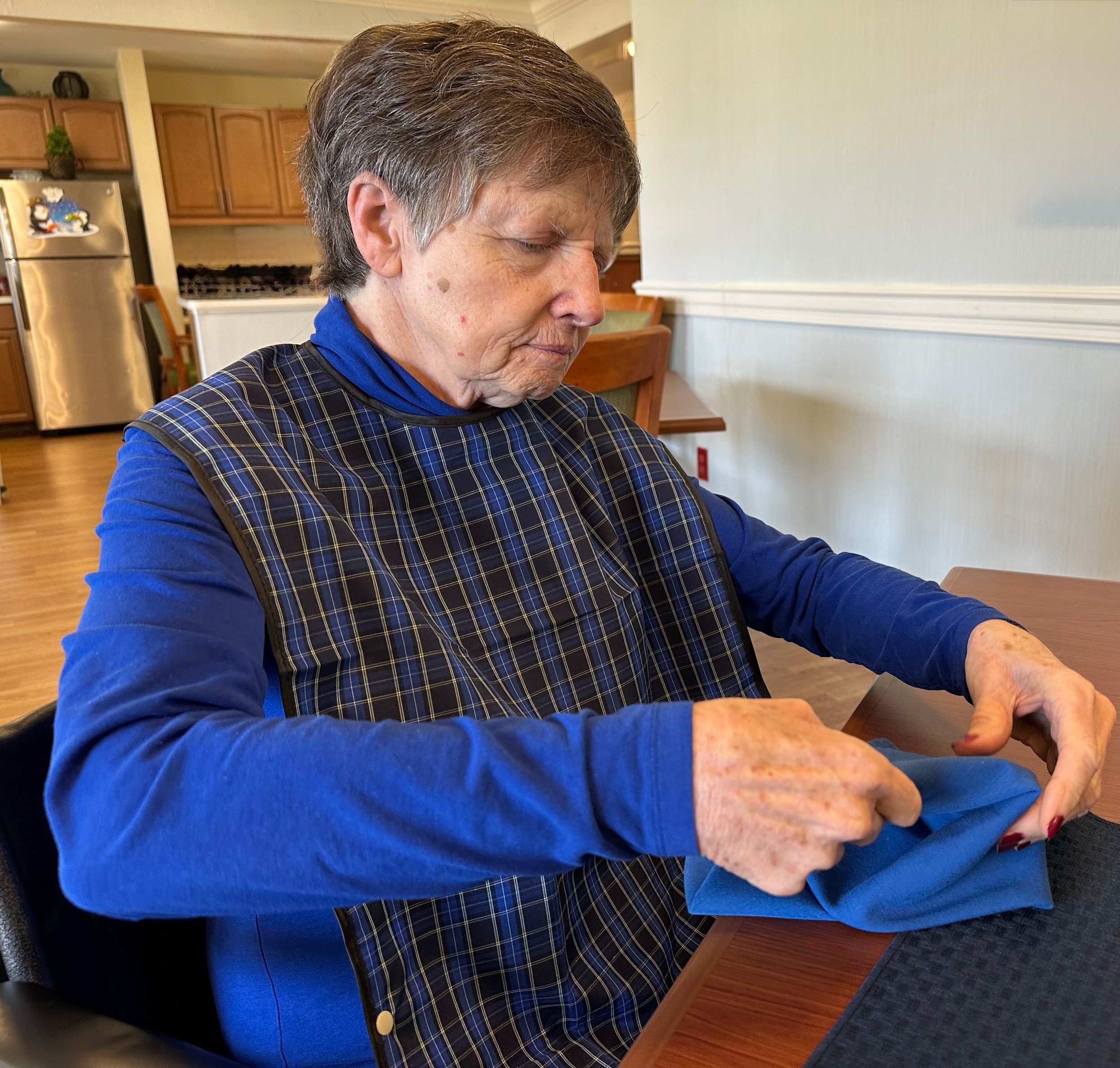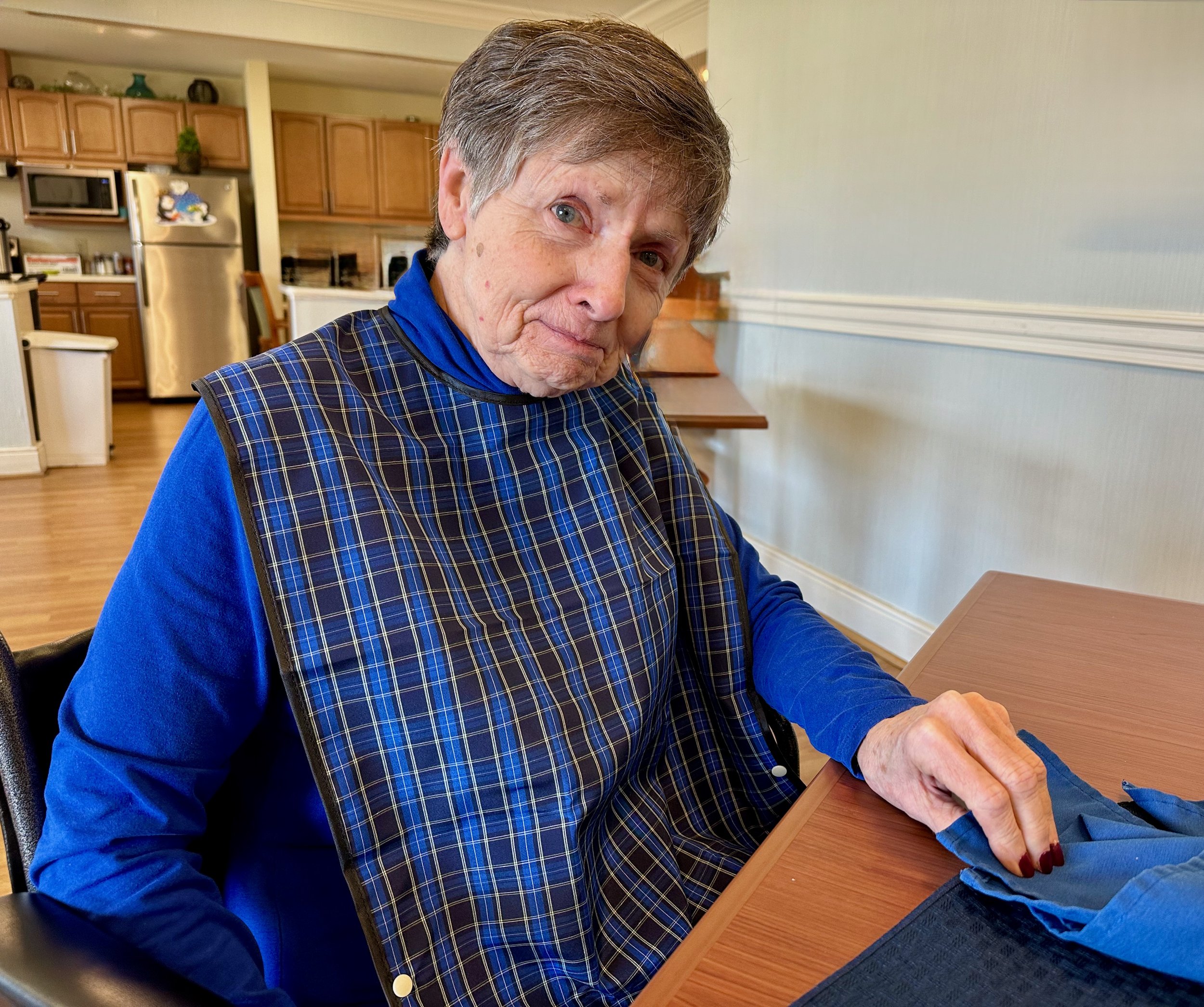Thanks to a reader who’s helping me understand ‘quality of life’
Picture a life nurtured by a constant stream of daily attention from people who care about your well-being.
They help you choose your clothes, and they do your laundry. The temperature is always comfortable where you are, and the atmosphere is pleasant. Your room is cleaned for you daily.
No worries
You really don’t worry about anything. It’s been years since you’ve written a check or asked about your bank balance or opened a bill. You’re as busy as you want to be. No one’s pressuring you with deadlines or performance reviews or daunting daily duties. You can relax.
You are well fed, with a variety of interesting dishes served to you by a staff that offers you choices at every meal. The dining room is bright, beside a whole wall of windows. Snacks are available 24/7, and so many activities—a whole list of them every day—are offered for your enjoyment. Someone goes with you when a musician has come to entertain.
You participate in special meals and parties for every holiday. You visit the beauty shop every week. A professional regularly stops by to check your health.
And the staff members of this pleasant place aren’t the only people you get to enjoy. Every day someone who loves you comes to visit. Sometimes these visitors bring gifts. Sometimes they play games or listen to music or go with you outside to enjoy the green grass and well-tended landscaping. You exercise with them. They trim and polish your nails—sometimes more than once every week.
Now suppose someone—a doctor or a pastor or a psychologist—would ask you to rate your quality of life. Certainly you’d give it a “10.” After all, you’re comfortable. Your every need is met. What could be better?
What could be better?
Well, of course in this case, so much could be better. You’re living here because you can’t take care of yourself at home. But your particular affliction is unique because it has rendered you unable to stress about where you lived before you came here. The disease leaves you unaware you have a disease. You don’t worry about being sick or getting sicker.
You’re content with what’s in front of you each moment, every day, because what’s right in front of you is all you have the capacity to consider.
Folding the napkin right in front of her.
I’m thinking about Evelyn, of course, and the oft-mentioned but sometimes misunderstood notion of quality of life. Misunderstood, because we tend to rate someone else’s quality of life by our perception without getting their input on the subject.
Anyone visiting Evelyn today, for example, or listening to me talk about her, might shake their head or shed a tear in sadness for all she’s lost. The quality of our lives with her has gone from a “10” to something creeping toward zero.
But Evelyn seems consistently unbothered by her decline. In many ways (except for the rickety joints and facial tics brought on by Parkinson’s), she’s never been more comfortable.
Meet Jordan
I’ve thought about all this more than once since she’s moved to Artis. But I considered it again after discovering the marvelous comment to last week’s post offered by a reader I’ve never met. You must read it yourself, but let me summarize.
Michael Coppock is dad to 39-years-old Jordan who suffered a massive stroke at 11 months old. “He is considered brain injured,” Michael wrote. “His brain was essentially erased. After years of physical, occupational, and speech therapy, Jordan functions pretty well at the level of a 4-year-old. He can do most things for himself except shower, cut his meat, and tie his shoes. His fine motor skills were wiped out.”
One of Jordan’s favorite activities: completing 1,000-piece puzzles.
Michael confesses the deep grief and worry the stroke caused. He and his wife were consumed with thoughts about all the normal activities and benchmarks of life Jordan would never enjoy.
“But the blessing is Jordan has never had stress,” Michael observes. Jordan feels no “pressure to earn a living, pay taxes, wonder where his next meal would come from, and he does not know he's ‘different.’ That is our greatest blessing. As long as we are close and we stick to his expected schedule each day, Jordan is happy.”
I could say the same about Evelyn (although I’d probably substitute “satisfied” for “happy”).
Michael said his mother asked him years ago, “Will Jordan ever get better?”
A family selfie: Michael with his wife Vicki, daughters Julia and Melinda, and Jordan.
And his response was, “Better than what? He has a pure heart and he loves people.” Jordan can tell you all about Jesus. Michael’s not sure how well he understands what he’s saying, but that’s OK. Michael describes his middle-age son this way: “Jordan has the faith of a little child.”
Our situation is different, of course. Not only will Evelyn not get better; she will inevitably decline. Just as I’m not sure we can call her “happy,” I don’t know what part of her damaged brain can embrace faith.
But she sings along with hymns now and then, and when a friend begins reciting Psalm 23 or John 3:16, Evelyn sometimes finishes it.
She never complains. She never worries. She’s seldom in pain. I can only conclude that, as much as she can grasp, her quality of life has never been better.



